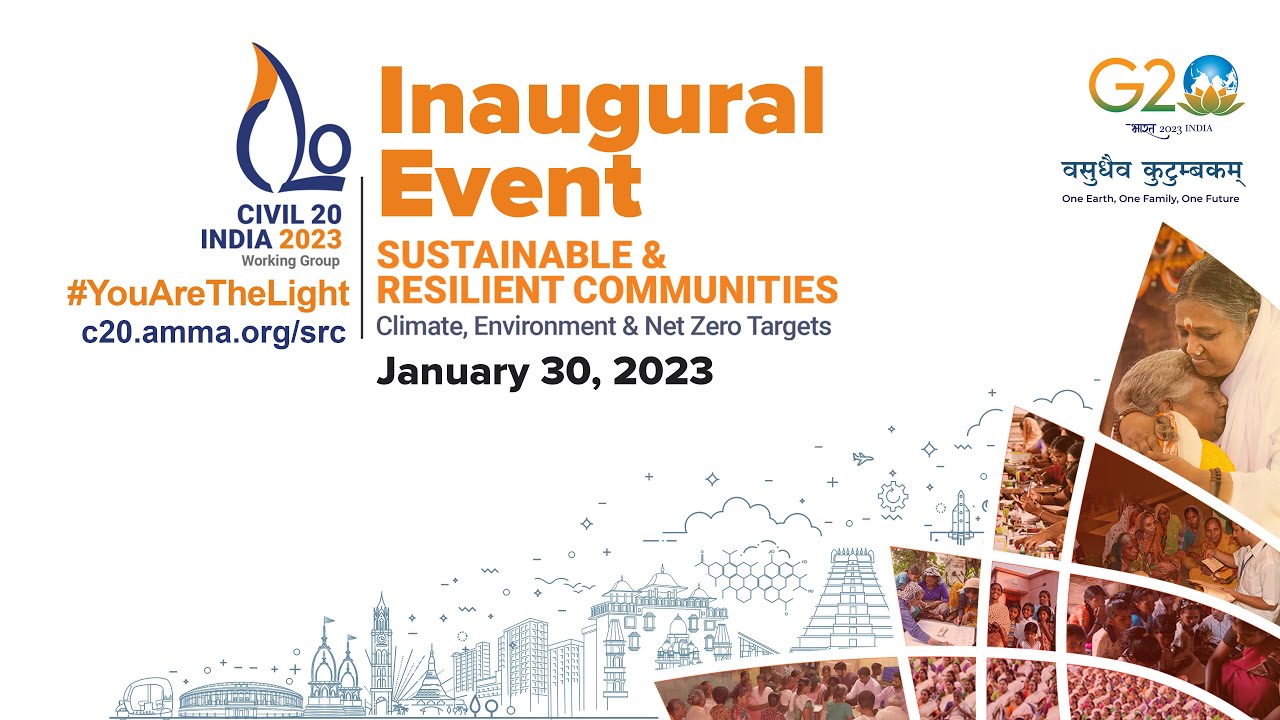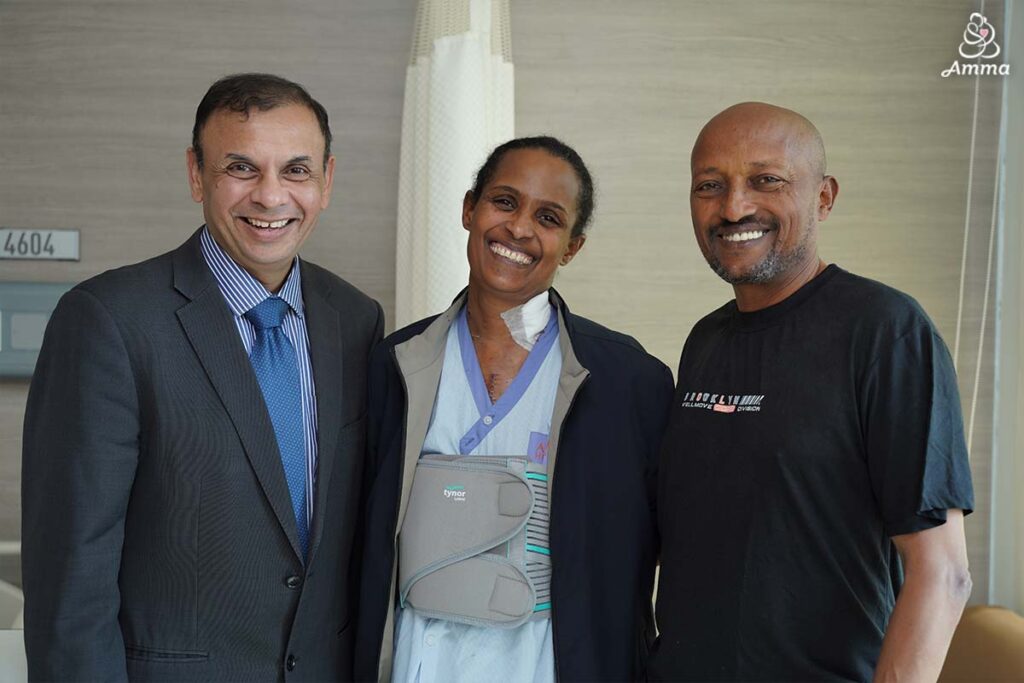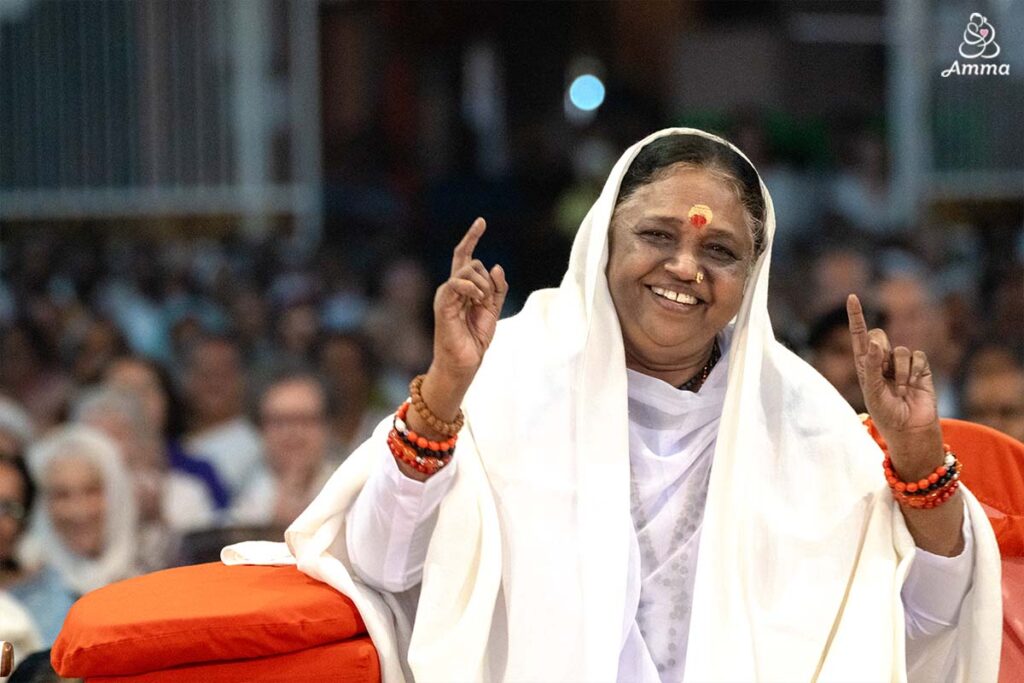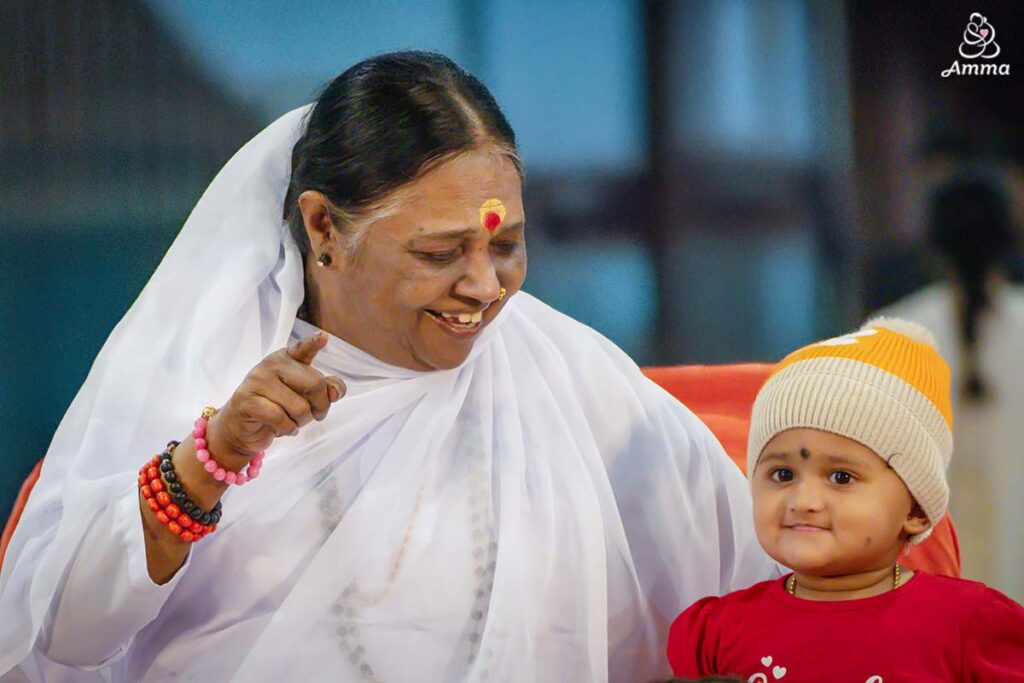Civil 20’s working group for Sustainable and Resilient Communities (SRC): Climate, Environment, and Net Zero Targets is focusing on the rapidly shifting human-environment paradigm, which is centred around climate change and human incursion into the natural environment.
The shift is occurring at an alarming rate and has placed several species on the path to extinction and is threatening almost all ecosystems. However, it is still possible to tackle these climate change impacts through highly focused, inclusive, and action-oriented approaches at a rate that can be scaled and replicated easily.
With this vision, SRC held a virtual inauguration on 30 January 2023 with 1644 people from many countries joining. Attendees were primarily from civil society organisations, members of the academic community, and government and partner organisations in India, Netherlands, Egypt, France, US, Italy, Kenya, Pakistan, China, Australia, India, and Argentina.
Amb. Vijay Nambiar, Principal Coordinator, C20, inaugurated the ceremony in the august presence of Dr. Mrityunjay Mohapatra, Director General of Meteorology, India Meteorological Department (IMD); Shri Agendra Kumar, Managing Director, ESRI India; and Sampujya Swami Amritaswarupananda Puri, Member of Troika – Civil 20 India and Vice-Chair, Mata Amritanandamayi Math.
In his keynote address, Amb. Nambiar spoke about the urgent need for international co-operation to address sustainability. “We need to make community resilience a reality for all, including at the last mile level. Governments will need to ensure that the clean energy transitions are people-centred and inclusive. This is, in fact, the unmentioned SDG [Sustainable Development Goal]. Without greater international co-operations globally, CO2 emissions will not fall to net-zero.”
Dr. Mohapatra highlighted India’s advancement in three important aspects: detection, attribution, and projection of climate change. This is urgently necessary to minimize the loss of lives due to disasters.
“Civil societies can play a dominant role in not only understanding climate change and its impact on sustainable development, but can ensure sustainable development through awareness campaigns, intervention, introduction, and adaptation of technology by each and every socio-economic sector,” Dr. Mohapatra said.
“There will be a great challenge when we move from the understanding to the adaptation of technology, because the occupation and livelihoods of the people will change in this changing scenario. Therefore, there will be a lot of interventions required from civil society in terms of the merging of science and social sciences in order to convince individuals to adopt better approaches for a better society. Not only for our generation, but also for the future generations.”
Swami Amritaswarupananda insisted that a values-based approach is essential and that it is necessary to bring back love and reverence towards nature in people’s hearts in order to get the desired results in our efforts to fight climate change.
“Environment and sustainability will rely on dynamic concepts involving individuals, technology and practices while keeping conservation and environmental consequences in focus. Currently 84% of our energy demands come from fossil fuels,” he said.
“Achieving net-zero emissions requires compassion, re-thinking, and innovation. A fundamental change in perspective is very much necessary along with the external changes we try to execute, so that it changes the fundamental ideas of what we define as precious and roots environmental awareness and values in the psyche of the next generations.”
Dr. Maneesha Sudheer, Provost, Amrita Vishwa Vidyapeetham, and Prof. Vinod Menon, Founding-Member of National Disaster Management Authority of India, are SRC’s National and International Coordinators respectively.
While introducing the vision of SRC, Dr. Sudheer said, “Our working group is looking forward to raising from self-centred goals to selfless societal goals by building solutions that are useful for others and making people and communities happier by reducing their suffering.”
“We are also looking at pathways to empowerment that are compassion-driven that will empower the youth, citizens and the communities as a whole.”
The event had four breakout sessions, one for each sub theme: Climate Resilience & Social Justice; Environment Sustainability; Net-Zero Emission Management; and Compassion-Driven Approach for Sustainable & Resilient Communities.
An official call for Udaaharans was also announced to invite the submission for best practices for impactful work by CSOs around the world who have made significant contribution in their areas. The meeting also saw deliberations on thematic areas and a dedicated open house session where participants raised their voices on issues in the area of climate, environment, and net-zero targets.





